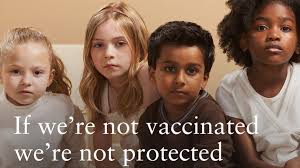
It's important that vaccines are given on time for the best protection, but if you or your child missed a vaccine, contact your GP to catch up.
SPEAK TO YOUR GP SURGERY IF:
- you think you or your child have missed any vaccinations
- you or your child have a vaccination appointment – but you've missed it or cannot attend
Your GP surgery can book or rearrange an appointment.
It's best to have vaccines on time, but you can still catch up on most vaccines if you miss them.
Vaccines for children
The routine childhood immunisation schedule offered to all infants includes vaccinations against: diphtheria, pertussis, polio, tetanus, Haemophilus influenza type b, meningitis C, meningitis B, measles, mumps, rubella and pneumococcal infection.
Things you need to know about vaccines
Non-urgent advice: Vaccines do
- help to protect you and your child from many serious and potentially deadly diseases
- protect other people in your family and community – by helping to stop diseases spreading to people who cannot have vaccines, such as babies too young to be vaccinated and those who are too ill to be vaccinated
- undergo rigorous safety testing before being introduced – they're also constantly monitored for side effects after being introduced
- sometimes cause mild side effects that will not last long – you may feel a bit unwell and have a sore arm for 2 or 3 days
- reduce or even get rid of some diseases – if enough people are vaccinated
Non-urgent advice: Vaccines do not
- do not overload or weaken the immune system – it's safe to give children and adults several vaccines at a time and this reduces the amount of injections needed
- do not contain mercury (thiomersal)
- do not contain any ingredients that cause harm – only ingredients essential to making them safer and more effective and only in very small amounts
- do not cause autism – studies have found no evidence of a link between the MMR vaccine and autism
Important: Be aware of anti-vaccine stories
Anti-vaccine stories are often spread online through social media and offline.
Always get your vaccine and health information from trusted sources, such as the NHS or World Health Organisation (WHO).
The vaccine information on social media may not be based on scientific evidence and could put your child at risk of a serious illness.
All the current evidence tells us that getting vaccinated is safer than not getting vaccinated.
Why vaccines are important
Vaccination is the most important thing we can do to protect ourselves and our children against ill health. They prevent millions of deaths worldwide every year.
Since vaccines were introduced in the UK, diseases like smallpox, polio and tetanus that used to kill or disable millions of people are either gone or are now very rarely seen.
Other diseases like measles and diphtheria have reduced to a very low number of cases each year since vaccines were introduced. These cases are often related to travel.
However, if people stop having vaccines, it's possible for infectious diseases to quickly spread again.